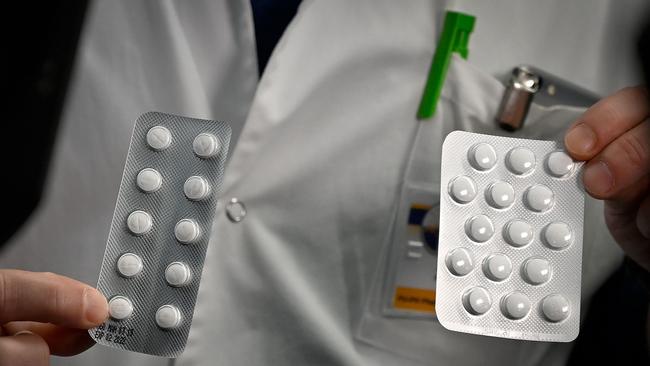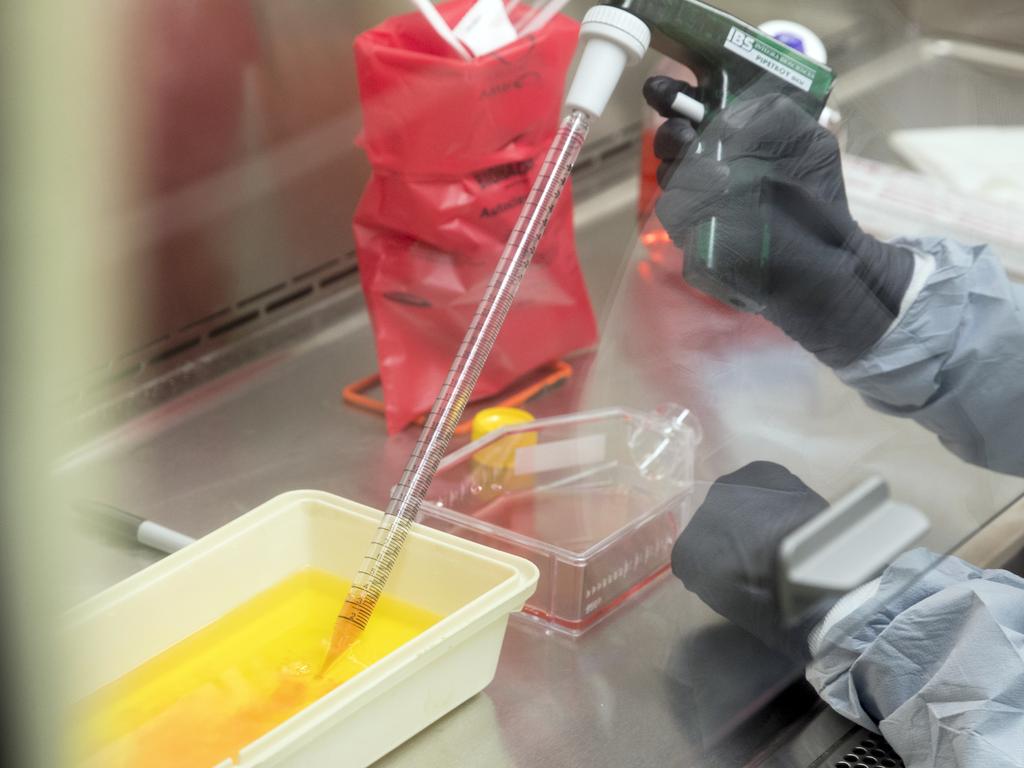Coronavirus: medics on frontline of epicentre doubt malaria drug cure
Chinese doctors who have for months treated patients on the front lines offer a sobering assessment of the potential treatments.

Doctors who have for months treated patients on the frontlines of China’s fight against the new coronavirus offered a sobering assessment of potential treatments, saying they hadn’t seen clear evidence that drugs such as chloroquine were effective.
One doctor, however, said he saw some promise for Kaletra — an antiretroviral drug for HIV.
In interviews arranged on Thursday by authorities in Wuhan, where the coronavirus crisis erupted late last year, doctors called for further research into the use of chloroquine, an anti-malarial drug.
The assessments came a day after Chinese authorities eased their lockdown of Wuhan.
Chloroquine has been the subject of fierce debate within the US administration. Donald Trump has at times touted it as a remedy and he has advised even those without symptoms to take the drug. That is in defiance of advice from public health experts and some of his own medical advisers.
White House trade adviser Peter Navarro has cited a study from Wuhan to argue for the federal government to distribute its stockpile of one form of the drug — hydroxychloroquine — to hard-hit areas of the US
Zhang Dingyu, the head of Wuhan’s Jinyintan Hospital, which has handled hundreds of coronavirus cases since December, said the evidence on chloroquine was so far inconclusive.
“Some patients took it by themselves, and after taking it, there were good and bad” results, Dr Zhang said, adding that some patients hadn’t tested negative even seven to 10 days after taking the drug. “There’s no scientific conclusion.”
He expressed concern, too, about the drug’s recommended dosage. Local health authorities warned in February that an overdose of chloroquine could be fatal.
While Dr Zhang expressed uncertainty about chloroquine, he said Kaletra — which blocks the enzymes some viruses need to replicate — appeared to have been effective with patients and infected colleagues, although a recent study concluded it didn’t work.
Desperation and the lack of a proven cure have prompted doctors around the world to experiment with remedies that haven’t yet passed clinical trials.
On February 18, China’s National Health Commission added chloroquine phosphate — a common form of the drug — to a list of approved treatments for coronavirus patients, although clinical trials have not yet finished.
The US Food and Drug Administration on March 28 authorised the emergency use of chloroquine phosphate and hydroxychloroquine in hospitalised coronavirus patients who weren’t able to participate in a clinical trial. That allowed the government to distribute millions of doses donated by drug companies.
Zhang Junjian, a doctor who ran a field hospital in Wuhan that treated more than 1700 coronavirus cases, said 20 to 30 patients had been treated with chloroquine but it was unclear whether the drug was effective. Given its unproven effects, “we were extremely careful,” said Dr Zhang, vice-president of Zhongnan hospital. “You can’t see any difference between it and other treatments.”
Dr Zhang of Jinyintan Hospital said several of his patients — and three infected colleagues — had taken Kaletra. “After taking it, the changes in their entire lungs were really dramatic, ” he said, adding that none of them needed critical care. “If I had a chance to do things again, I would definitely have patients take this drug within three to five days of getting sick.”
A study published last month in the New England Journal of Medicine, based on a test on severe coronavirus cases at Jinyintan, concluded Kaletra wasn’t effective, but Dr Zhang said many of the cases at Jinyintan took Kaletra in conjunction with bismuth subcitrate potassium, which had also been effective. Bismuth subcitrate is used to treat a common bacterial stomach infection. He also recommended transfusing plasma from someone who has recovered into someone who is sick, in hopes that the donor’s antibodies help the recipient recover.
The Wall Street Journal







To join the conversation, please log in. Don't have an account? Register
Join the conversation, you are commenting as Logout